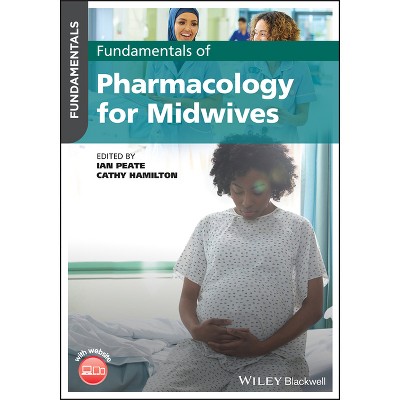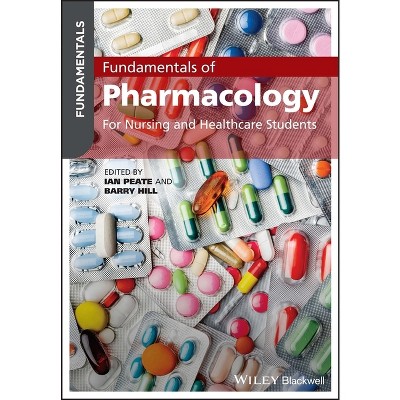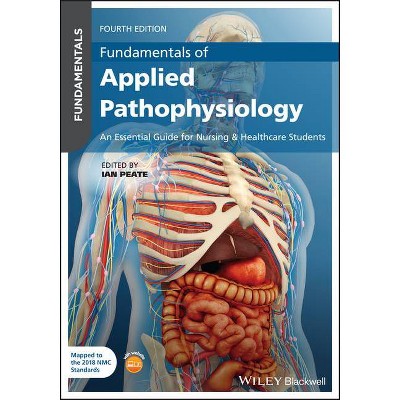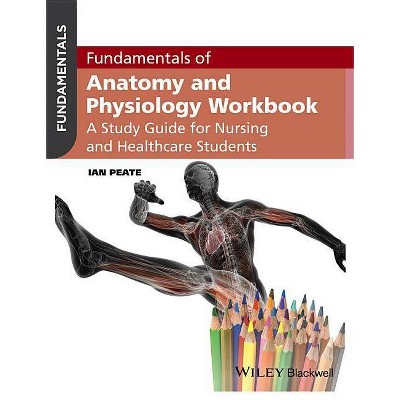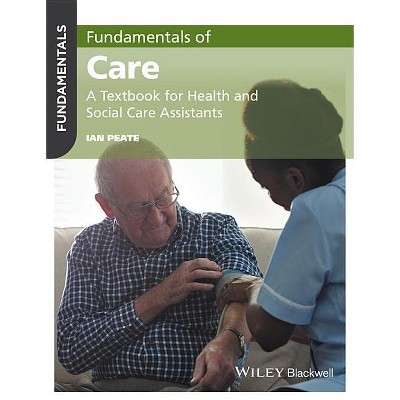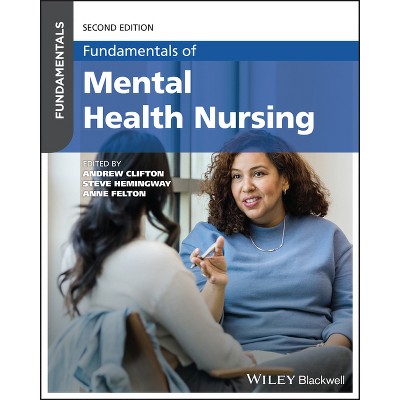Fundamentals of Pharmacology for Children's Nurses - by Ian Peate & Peter Dryden (Paperback)

About this item
Highlights
- Registered Nurses must have thorough knowledge of pharmacology, medicines administration, and the effects of medicines.
- About the Author: Ian Peate, OBE FRCN is Principal, School of Health Studies, Gibraltar; Visiting Professor of Nursing, St George's University of London and Kingston University London; Visiting Professor, Northumbria University; Visiting Senior Clinical Fellow, University of Hertfordshire, and Editor-in-Chief of the British Journal of Nursing.
- 448 Pages
- Medical, Nursing
- Series Name: Fundamentals
Description
About the Book
"This text has been written by clinicians and academics who are experienced in the care of CYP and their families. They bring with them a wealth of experience that they share, helping you to come to terms with the ... subject of applied pharmacology. The chapters begin by providing an overall aim along with a number of learning outcomes. At the end of the chapters, so as to promote supplementary learning, a further reading list has been provided. [This book] uses a number of strategies to help you learn about pharmacology and to how to apply the knowledge acquired. Episodes of care are included in most chapters--this brings, as near as possible, the clinical environment to the theory being discussed. The clinical consideration features boxes and the skills-in-practice features are there to encourage you to link the theory with practice. Test-your-knowledge questions are provided at the beginning and [end] of the chapters and a suite of additional learning in the form of multiple-choice questions and other types of quizzes are provided"--Book Synopsis
Registered Nurses must have thorough knowledge of pharmacology, medicines administration, and the effects of medicines. Fundamentals of Pharmacology for Children's Nurses is written for nurses and allied health professionals involved in the care of children and young people (CYP) to focus exclusively on pharmacology. Filling a gap in current literature on the subject, this much-needed resource develops the competence and confidence required to prescribe, dispense, and administer medicines to children and young people.
Emphasising the importance of patient-centered care to CYP, the text describes the role of the healthcare provider working with CYP and their families; explains how to use pharmaceutical and prescribing reference guides; discusses legal and ethical issues; examines pharmacodynamics and pharmacokinetics, and more. Helping readers respond appropriately and compassionately to the needs of those receiving care and their families, this textbook:
- Covers a wide range of medications used in diabetes, cancer, mental health, and other areas
- Features a wealth of full-colour images and numerous pedagogical tools including learning objectives, self-test questions, and reflective exercises to enable readers to contextualise and assess their knowledge
- Presents case studies to reinforce learning, and illustrate the application of theory to practice
- Provides authoritative and practical guidance on formulations, adverse drug reactions, analgesics, antibiotics, immunisations, and the medications most commonly used when providing care to CYP
- Includes access to a companion website with interactive MCQs, case studies, references, an image bank, and links to further reading and supplemental resources
Fundamentals of Pharmacology for Children's Nurses is essential reading for undergraduate children's nursing students, trainee nursing associates, those undertaking healthcare programmes of study, as well as those seeking to better understand pharmacology.
From the Back Cover
Fundamentals of Pharmacology for Children's Nurses
Registered Nurses must have thorough knowledge of pharmacology, medicines administration, and the effects of medicines. Fundamentals of Pharmacology for Children's Nurses is written for nurses and allied health professionals involved in the care of children and young people (CYP), focusing exclusively on pharmacology. Filling a gap in the current literature on the subject, this much-needed resource develops the competence and confidence required to prescribe, dispense, and administer medicines to children and young people.
Emphasising the importance of patient-centered care to CYP, the text describes the role of the healthcare provider working with CYP and their families; explains how to use pharmaceutical and prescribing reference guides; discusses legal and ethical issues; examines pharmacodynamics and pharmacokinetics, and more. Helping readers respond appropriately and compassionately to the needs of those receiving care and their families, this textbook:
- Covers a wide range of medications used in diabetes, cancer, mental health, and other areas
- Features a wealth of full-colour images and numerous pedagogical tools including learning objectives, self-test questions, and reflective exercises to enable readers to contextualise and assess their knowledge
- Presents case studies to reinforce learning, and illustrate the application of theory to practice
- Provides authoritative and practical guidance on formulations, adverse drug reactions, analgesics, antibiotics, immunisations, and the medications most commonly used when providing care to CYP
Fundamentals of Pharmacology for Children's Nurses is essential reading for undergraduate children's nursing students, trainee nursing associates, those undertaking healthcare programmes of study, as well as those seeking to better understand pharmacology.
About the Author
Ian Peate, OBE FRCN is Principal, School of Health Studies, Gibraltar; Visiting Professor of Nursing, St George's University of London and Kingston University London; Visiting Professor, Northumbria University; Visiting Senior Clinical Fellow, University of Hertfordshire, and Editor-in-Chief of the British Journal of Nursing.
Peter Dryden is a Programme Lead for Children's Nursing and a Senior Lecturer, Department of Nursing, Midwifery & Health, Northumbria University, UK. He has worked on a number of National and Regional developments such as National Institute for Health and Clinical Excellence (NICE) standards for IBD.






